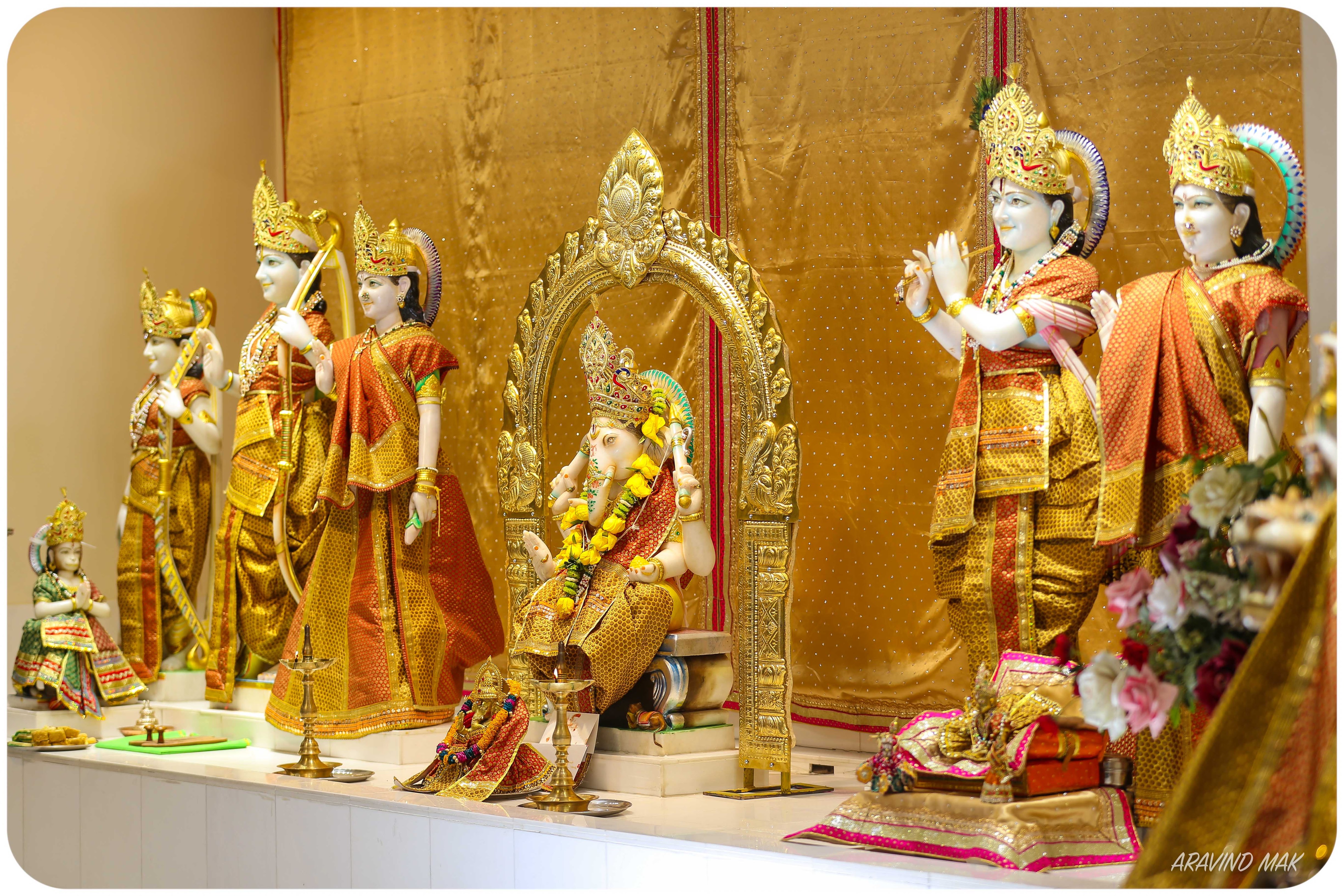Ram, Sita, Laxman

Rama means "that which revels in everything" - the pure light of Consciousness, the Atman and the Self. This spiritual essence in us can come out only as the son of Dasaratha, the one who has conquered all the ten indriyas (sense organs) - the five jana indriyas (organs of perceptions) and five karma indriyas (organs of action). This spiritual essence is born in each person and reborn only Ayodhya, which in Sanskrit means "where there is no conflict". In Ayodhya, which is ruled only by a self-controlled individuals, anyone given to self-indulgence and sensual pleasures can have no peace and tranquillity. Dasaratha's son Rama is born. This Rama, the pure self, cannot enter into active participation in life unless wedded to Sita in mind. She is not born to King Janaka through natural causes; while ploughing the land, he find Sita. Later this same Sita disappears back into Mother Earth.
When Rama returns, wedded to Sita (mind), he find she cannot live in Ayodhya. Once mind has come, one starts expressing through it. One has to enter the forest of life, self-exiled, as it were. So long as Sita looks up to Rama, lives in Rama, for Rama, by Rama, she never finds any difference between Ayodhya and a jungle. But how long can the mind remain constantly centered in the higher divine potential in us? It has to become extrovert. And this is just what happens the moment Sita looks away from Rama. She notices the golden deer. The finite, ephemeral, ever-changing objects start pulling her toward them. The mind demands them, Rama argues and all the scriptures argue that it is all Maya, it is not real; it is only a raksasa (demon). Yet even Sita, Rama's own consort, will not accept it, and she exiles Rama in search of the sense objects. Once desire-polluted, she falls. When Rama goes, he winks at Laksmana and they both understand that the deluded girl is suffering. Sita is left in charge of Laksmana.
Laksmana represents tapas (austerity). He has no reason to go the jungle, but he leaves of his own accord, and lives in perfect brahmacharya (self-control), even without sleep. It is perfect tapas. The delusion of hte outer world, will force him to give it up. The moment Sita hears the sound of Rama's voice she forgets Rama's glory and might and becomes anxious about his safety. She eve urges Laksmana to go to her husband's aid. And when Laksmana assures her that the great Rama will never come to any harm, for there is none to match him in skill or valour. Sita severely rebuffs him. Valmiki is an honest poet. His goal is not merely to bring out the ideal character of a woman, but his is a spiritual ideal. He paints her in a coal tar. The beautiful image of Sita is deliberately tarnished by the poetry. Why? When ideal woman Sita utters such malignant words. Laksmana is shocked into silence. He goes away, drawing a line of demarcation around the hut, urging her not to go beyond it.
